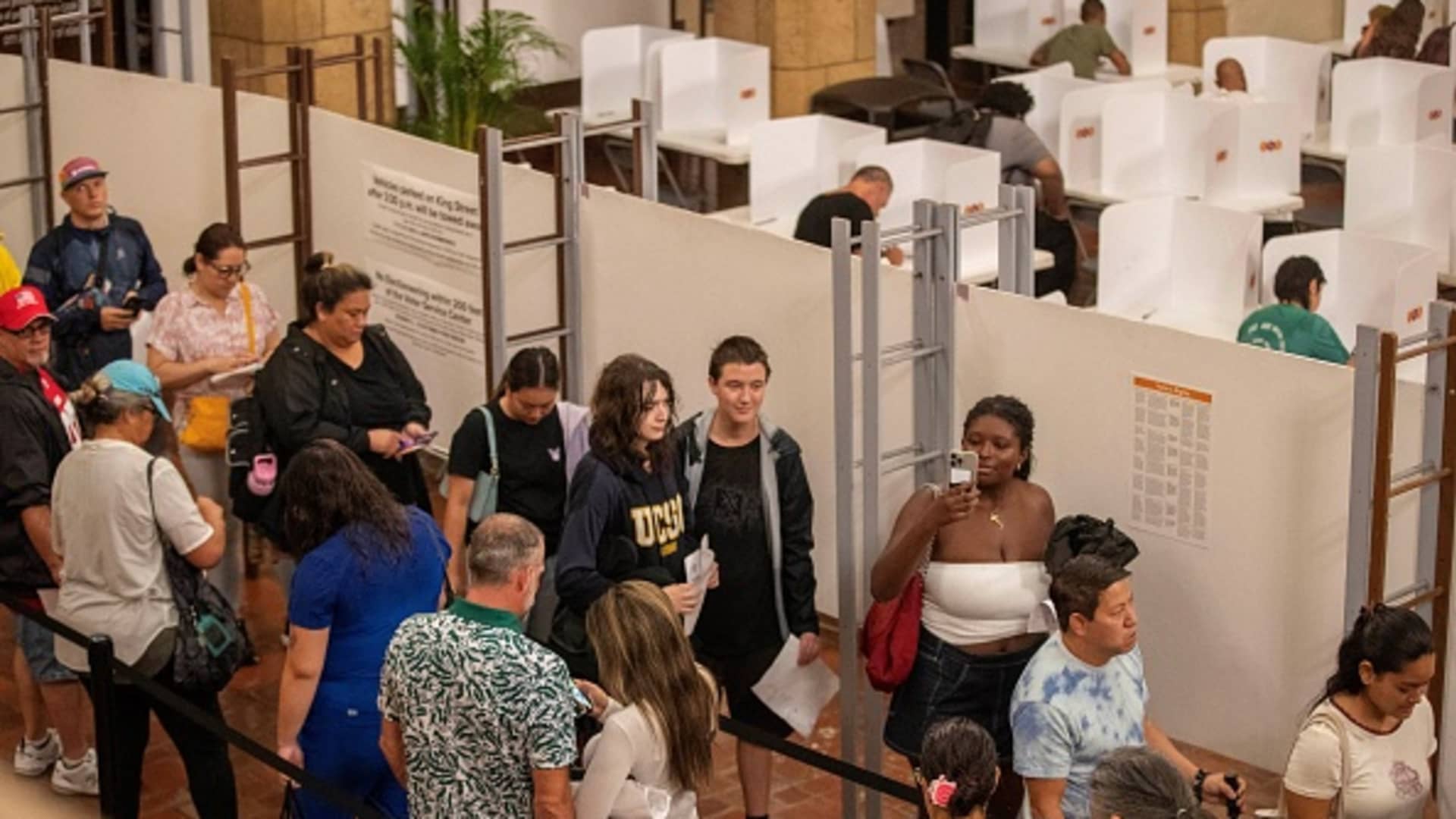This report is from today’s CNBC Daily Open, our international markets newsletter. CNBC Daily Open brings investors up to speed on everything they need to know, no matter where they are. Like what you see? You can subscribe here.
What you need to know today
Live election updates from CNBC
NBC News projected that Donald Trump has won Pennsylvania, North Carolina and Georgia, three of the seven swing states that could determine the winner of the U.S. presidential election. The Republican Party will also regain majority control of the Senate in 2025, according to NBC. Follow CNBC’s elections live blog for more real-time updates.
Markets rally as investors await results
U.S. markets experienced a broad rally on Tuesday. All major indexes added at least 1%. Asia-Pacific markets traded mixed Wednesday as investors digest preliminary results from the elections. Japan’s Nikkei 225 rose more than 2.5%, leading gains in the region, while Hong Kong’s Hang Seng index slipped 2.5%.
‘Counter-cyclical monetary policy’
The People’s Bank of China intends to continue using monetary policy to support the country’s economy, said Pan Gongsheng, governor of the central bank. Pan was speaking at a meeting of the National People’s Congress Standing Committee, which ends Friday. Market watches expect China to announce more fiscal stimulus at the meeting.
Toyota’s profit backtracks
Japanese automaker Toyota Motor’s fiscal second-quarter operating profit fell 20% from a year ago, missing analysts’ expectations. Sales for the quarter also dropped to 2.3 million from 2.42 million year on year. The world’s biggest automaker by sales has been slow in embracing the industry’s shift to electric vehicles.
[PRO] Three stocks to buy regardless of election
Investors may be positioning their portfolios to catch tailwinds from the elections. Any returns, however, are expected to be short-lived, according to analysts. One is looking past this volatility to focus on three stocks that will likely perform well in the long run, regardless of who wins the elections.
The bottom line
For the next couple of hours, the world will be anxiously tracking U.S. elections results to see how red or blue the map turns.
But investors should not take their eyes off markets.
It may be tempting to view market moves as a proxy for the direction that the elections will go. For instance, Tesla popped 3.5% on Tuesday and rose an additional 2.9% during extended trading.
Some may see it as a sign that investors are more confident about a Democratic victory, because the party will likely preserve incentives for electric vehicle companies; others might read it as a vote of confidence for the Republican Party, given CEO Elon Musk’s close ties with Donald Trump.
The open interpretation of Tesla’s stock suggests that stock movements are mostly just that: a price signal about the desirability of the company, not a political bellwether.
It’s far more fruitful to focus on trading opportunities that might arise from this period of change in the White House.
Stocks might see a sell-off after the election, according to Nomura, because of “the substantial accumulation of long positions in U.S. equities by real-money investors and macro hedge funds.”
But UBS thinks any outsized market moves caused by election volatility is an opportunity for investors to build up their portfolios. In the long run, “U.S. equities are attractive and should be supported by benign growth, lower rates, and structural support from AI, regardless of the election result,” Solita Marcelli, chief investment officer for the Americas at UBS Global, wrote in a Tuesday note.
The optimism around the economy and markets is shared by Ryan Detrick, chief market strategist at Carson Group.
“The reality is whoever is given the keys to the White House, if you will, is going to be taking on a car that’s in pretty good shape â an economy that’s in pretty darn good shape,” Detrick added.
And even though the sitting president may chart the direction of markets, it’s the economy, fundamentally, that will drive stocks.
â CNBC’s Fred Imbert, Pia Singh, Jesse Pound and Samantha Subin contributed to this report.   Â

